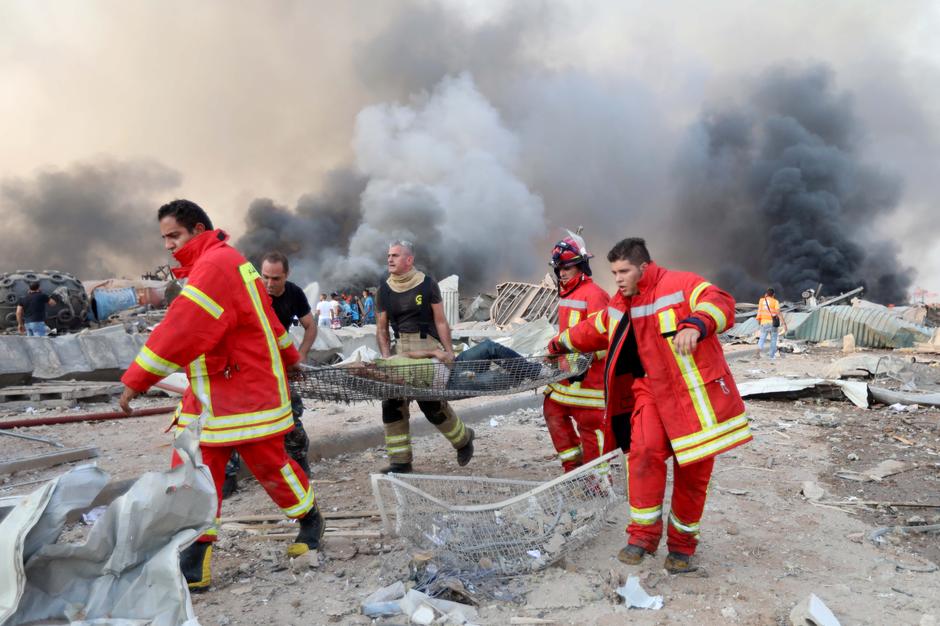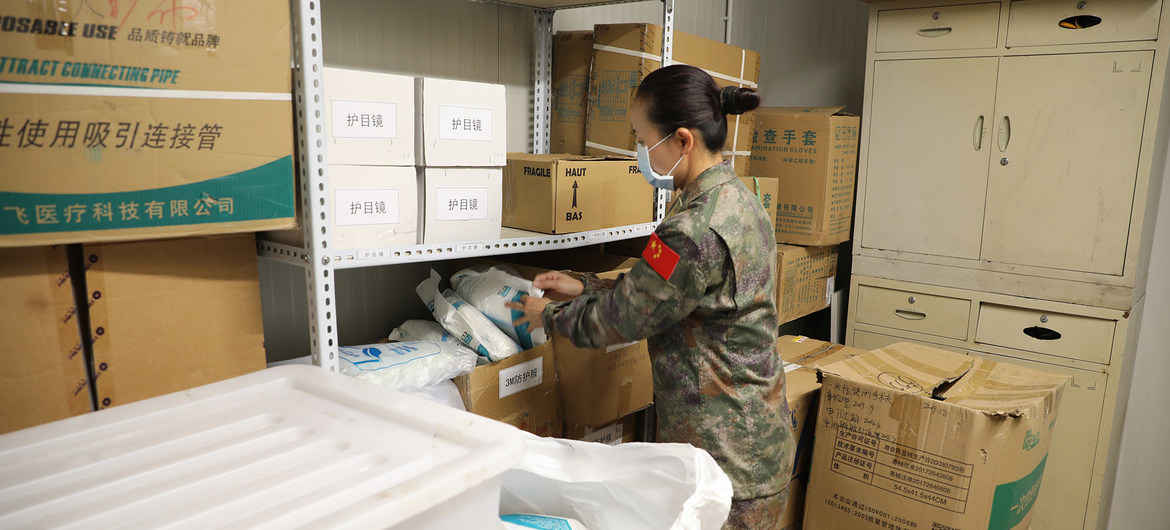
Smoke and damage are pictured at the site of a massive explosion in Beirut's port area, Lebanon, August 4, 2020. /Reuters
Smoke and damage are pictured at the site of a massive explosion in Beirut's port area, Lebanon, August 4, 2020. /Reuters
Lebanon's cabinet has handed control of Beirut's security to the military following Tuesday's massive explosions that sent shockwaves across the city.
As of Wednesday evening, the death toll from the blasts stood at 135 people with over 4,000 injured and dozens still missing.
According to Governor Abboud, at least 300,000 people have been displaced from their homes by the devastating explosions.
The cause of the blast is being investigated, but Lebanon's Prime Minister, Hassan Diab, said the cause of the explosion was 2,700 tonnes of ammonium nitrate stored in a warehouse for six years. President Michel Aoun tweeted it was "unacceptable" the explosives had been stored unsafely. Aoun declared three days of mourning and called for a two-week state of emergency.
Lebanon's cabinet also agreed to place all port officials who oversaw storage and security since 2014 under house arrest, according to local media reports.
"We call on the military leadership to impose house arrest on all those who organised the storage of ammonium nitrate" at Beirut's port, Information Minister Manal Abdel Samad said.

An injured man is being carried by rescuers out of the site of an explosion in Beirut, Lebanon, August 4, 2020. /Reuters
An injured man is being carried by rescuers out of the site of an explosion in Beirut, Lebanon, August 4, 2020. /Reuters
World offers support, condolences to Lebanon
Countries dispatched emergency medical aid, pop-up field hospitals, rescue experts and tracking dogs to Lebanon on Wednesday.
Gulf states were among the first to respond, with Qatar sending mobile hospitals to ease pressure on Lebanon's medical system, already strained by the coronavirus pandemic.
Kuwait also sent medical supplies as the Lebanese Red Cross said more than 4,000 people were being treated for injuries after the explosion, which sent glass shards and debris flying.
A Greek C-130 army transport plane bearing a dozen rescuers landed at Beirut's airport, itself damaged in the catastrophic explosion.
The medical unit of the Chinese peacekeeping forces stationed in Lebanon said Wednesday said it's ready and will head to Beirut, carrying medical supplies and protective equipment.
Read more: Xi sends condolences to Lebanese president over massive blast

A medical unit of the Chinese peacekeeping forces to Lebanon prepares medical supplies and protective equipment, August 5, 2020. /Photo via UN website
A medical unit of the Chinese peacekeeping forces to Lebanon prepares medical supplies and protective equipment, August 5, 2020. /Photo via UN website
Lebanon's Prime Minister Hassan Diab has called on "friendly countries" to support a nation already reeling from its worst economic crisis in decades as well as a coronavirus outbreak that has infected over 5,000 people and killed 68.
From Europe, authorities in the Netherlands, the Czech Republic and Poland offered an array of assistance including doctors, police and firefighters, together with rescue experts and sniffer dogs.
Chancellor Angela Merkel on Wednesday also promised Germany's help to Lebanon.
Italy said it had sent 14 firefighters specialized in assessing chemical risks and damaged structures to provide technical support.
France said it was sending search and rescue experts aboard three military planes loaded with a mobile clinic and tonnes of medical and sanitary supplies.
President Emmanuel Macron is to travel to Lebanon on Thursday, the first world leader to do so after the disaster, as France seeks to swiftly push reconstruction in the country. "France is at the side of Lebanon. Always," Macron tweeted in Arabic.
Prosecutors in France also opened an investigation into the blast, which wounded 21 French citizens.
Britain's Queen Elizabeth II sent a message of condolence to the president of Lebanon, saying she was "deeply saddened" by the blast.
The World Health Organization also said it was sending trauma and surgical kits from its Dubai base after the "shocking event" that comes at a "particularly difficult time in Lebanon."
(With input from agencies)